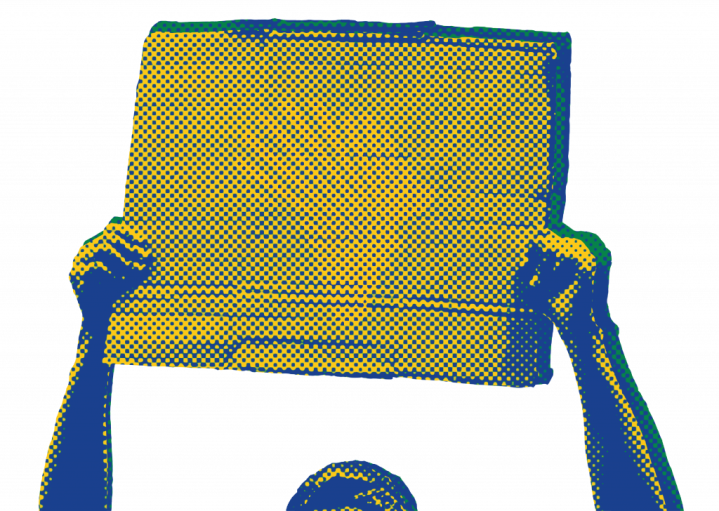SPONSORED CONTENT
Should I blow the whistle?

Whether or not to blow the whistle is, more often than not, one of the weightiest decisions a person stands to make in life. As a prospective whistleblower, one has to ask: how will this affect my job, my future job prospects, my financial situation? How will it affect my physical and mental health, my safety and the safety of my loved ones? Both legislation to protect whistleblowers as well as the enforcement of such legislation are often woefully inadequate.Yet whistleblowers are essential in combating crime, corruption and impunity. In light of this situation, NGOs have emerged, like the Platform to Protect Whistleblowers in Africa (PPLAAF), that specialise in helping whistleblowers who seek to make a disclosure in the public interest. The best time to approach them? Well before the whistle is blown.
While turning into her driveway one morning, having just taken her daughter to school, Babita Deokaran was shot 9 times; later that day, she succumbed to her injuries. Deokaran was murdered in what was a blatent hit; she was the target of this hit because she had flagged and tried to prevent corruption to the tune of hundreds of millions of Rands in the Gauteng Department of Health, where she was employed. Deokaran, who had been subjected to harassment, intimidation and bogus misconduct allegations, persevered in her fight against corruption, despite the perils she continued to face. This outstanding civil servant paid with her life for bravely doing what was right. In South Africa, far too many whistleblowers are murdered, or have their lives turned into a nightmare after they make disclosures.
Deokaran’s death was followed by an outcry as well as demands for legal reform to enable better protection of whistleblowers. There are glaring shortfalls in the current legislation. One of the most serious deficiencies is the lack of provisions for the physical safety of whistleblowers who find themselves in danger. Another limitation is that a disclosure can only be made by certain people to select bodies/individuals in order for it to be considered a ‘protected disclosure’.
Nonetheless, current legislation states that employees and workers who make protected disclosures relating to impropriety, whether in the public or private sector, may not be subject to ‘occupational detriment’ (including disciplinary action, dismissal, suspension, demotion, harassment or intimidation) on account of having made a protected disclosure.
Of course, the stark reality is that any law is only as good as its enforcement. While Deokaran was, in theory, protected by current legislation from retaliation in the workplace, this did not, in practice, prevent her from facing a slew of abuse. This does not mean we should throw out the baby with the bathwater; it is important to improve laws, but it is equally necessary to fight for a culture of accountability and an environment in which those who seek to do the right thing are protected as a matter of course. However, given the complexity in changing laws as well as a pervasive culture of retaliation against whistleblowers, both these projects are colossal and require a great amount of time and resources.
In the meantime, democracies crucially depend on whistleblowers to come forward with information in order to combat crime, corruption and impunity, all of which are endemic in South Africa. But how – concretely and immediately – can we protect them?
In light of the precarious reality for whistleblowers, civil society is stepping in to provide much-needed help. Organisations such as the Platform to Protect Whistleblowers in Africa (PPLAAF), which specifically seeks to help and protect whistleblowers whose disclosures speak to matters of public interest, are sprouting up.
Whistleblowers, often driven by a strong impulse and a sense of urgency to do the right thing, may make disclosures hastily and ‘in the thick of it’. This is valiant and commendable; however, it can precipitate grave unintended and unforeseen consequences.
If you are thinking of blowing the whistle, the best thing to do is to consult with an organisation such as PPLAAF well before any disclosure is made to anyone. Every case is different, and PPLAAF can assist with a strategic assessment of all the factors pertaining to the case at hand. Careful, sensitive, expert consideration and strategic advice – covering everything from mental health to a possible move to another country – may well be required in respect of a disclosure made in the public interest.
PPLAAF not only offers strategic advice through end-to-end encrypted communications but also access to pro bono legal services and guidance on approaching journalists.
In the wake of the Zondo Commission, one hopes South Africa is moving into an age of accountability. We must, however, seek to protect those who risk everything in the name of fighting crime or corruption in order to herald this new age of accountability. DM
“When most organisations turned their back on me, PPLAAF was there.“ –Athol Williams, whistleblower on BAIN’s central role in enabling state capture
Visit www.PPLAAF.org.
Author: Cecelia Kok, Head of Research and Advocacy Projects, Friedrich Naumann Foundation
















 Become an Insider
Become an Insider
Comments - Please login in order to comment.